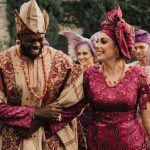In Nigeria, weddings are more than just the union of two individuals; they are a celebration of culture, family, and tradition. One tribe that has beautifully woven these values into their wedding ceremonies is the Yoruba people. Rich in culture and deep in symbolism, Yoruba weddings are events that blend joy, laughter, prayers, and sometimes even tears. At the heart of this intricate celebration is the Alaga Ijoko, one of the key figures who ensures that everything runs smoothly. This blog post dives deep into the role of the Yoruba Alaga Ijoko in weddings, highlighting their importance and the cultural significance they bring to such a joyful occasion.
Who is the Alaga Ijoko?
The word Alaga Ijoko can be broken down to mean “Chairperson of Sitting.” In the context of a traditional Yoruba wedding, the Alaga Ijoko is a pivotal figure, acting as the master of ceremonies during the introduction or engagement ceremony. Often a woman, the Alaga Ijoko’s role is to anchor the event, ensuring that the necessary traditions and customs are adhered to and that all activities are conducted with flair and respect.
Yoruba weddings are deeply rooted in rituals, prayers, and symbolic actions, all of which are carried out in stages. The Alaga Ijoko is the person who guides these stages, using wit, wisdom, and an undeniable sense of humor. If you’ve ever attended a Yoruba traditional wedding, you know it’s a spectacle of joy, color, and drama, and the Alaga Ijoko is the one who steers this ship. Without them, the event could lose its structure or descend into chaos.
The Responsibilities of the Alaga Ijoko
The following are the important roles of Alaga Ijoko in yoruba land;
1. Setting the Tone for the Event
The Alaga Ijoko is usually the first voice you hear once the ceremony begins. It is their job to set the tone for the day, welcoming both families and guests and helping them settle into the rhythm of the event. They bring a sense of order and excitement, combining light-hearted banter with deep cultural references. A good Alaga Ijoko ensures that even the most reserved guest feels comfortable and included.
The Yoruba people are known for their love of humor, and an Alaga Ijoko is expected to bring an element of fun to the event. Through jokes, proverbs, and songs, they help diffuse tension and keep everyone in high spirits. This is especially important at the beginning of the ceremony when there may be some nervousness among the bride, groom, and their families.
2. Introducing the Bride’s Family
In Yoruba culture, families are paramount, and marriages are seen as unions between two families rather than just two individuals. The introduction of the bride’s family is a significant part of the ceremony, and the Alaga Ijoko ensures that this is done with respect and in line with cultural expectations. They call on key family members to introduce themselves and state their intentions.
The Alaga Ijoko also helps facilitate communication between the two families. With their deep understanding of Yoruba customs, they ensure that no one oversteps cultural boundaries while maintaining the flow of conversation. Their presence provides a calming assurance that both families are about to embark on a fruitful partnership.
3. Guiding the Groom’s Entrance
One of the highlights of the Yoruba engagement ceremony is the grand entrance of the groom and his family. The Alaga Ijoko plays a crucial role in this process, ensuring that the groom’s family adheres to the traditional etiquette and respect required. The groom is usually required to prostrate before the bride’s family, a gesture that symbolizes respect, humility, and the acknowledgment of his new role as a husband.
The Alaga Ijoko ensures that this part of the ceremony is carried out properly, adding commentary, encouragement, and sometimes even comic relief. They ensure that the prostration, a moment of cultural depth, is done with reverence while keeping the mood lively and enjoyable.
4. Introducing the Bride
When it comes time for the bride’s entrance, the Alaga Ijoko takes center stage once again. The bride is introduced with a great deal of fanfare, with the Alaga Ijoko leading chants, songs, and dances. As the bride makes her entrance, her beauty and grace are celebrated, often with traditional Yoruba praise poetry known as oriki. The Alaga Ijoko’s role here is to ensure that the bride is properly honored, all the while maintaining the energy and excitement of the ceremony.
For many brides, this is an emotional moment, as they are leaving their parents’ home and preparing to start a new life with their husband. The Alaga Ijoko recognizes this and often serves as an emotional anchor, helping the bride through this transition with humor, grace, and empathy.
5. Moderating the Dowry Presentation
In Yoruba weddings, the presentation of the bride price or dowry is a highly symbolic moment. It represents the groom’s family’s recognition of the value and upbringing of the bride, and the Alaga Ijoko ensures that this process is done correctly. There are certain traditional items that must be presented, including kola nuts, alligator pepper, and even bottles of wine, and the Alaga Ijoko makes sure that everything is accounted for.
During this part of the ceremony, the Alaga Ijoko often negotiates with representatives of the bride’s family, sometimes playfully “rejecting” the initial offering before eventually accepting it after some back-and-forth. This is all done in good fun, but it is also a reminder of the deep respect and honor that Yoruba culture places on marriage.
6. Coordinating the Exchange of Rings and Prayers
Although the traditional Yoruba engagement is different from the Western-style wedding, it still involves the exchange of rings or symbols of commitment. The Alaga Ijoko guides this process, ensuring that the couple understands the significance of the moment. After the exchange of rings, prayers are often said for the couple, asking for blessings, prosperity, and long life. The Alaga Ijoko leads these prayers, sometimes calling on elders from both families to give their blessings as well.
Why the Role of the Alaga Ijoko is Important
In Yoruba weddings, tradition is everything, and the Alaga Ijoko is the custodian of that tradition. They carry the weight of centuries of Yoruba culture on their shoulders, ensuring that every aspect of the wedding ceremony is done according to custom. More than just a master of ceremonies, they are cultural gatekeepers, making sure that the next generation carries on the values of their forefathers.
Beyond tradition, the Alaga Ijoko also serves as a unifying figure. Weddings can be emotional and stressful events, but the Alaga Ijoko uses their wisdom and humor to ease tensions and bring everyone together. Whether it’s through playful teasing or solemn prayers, the Alaga Ijoko ensures that both families leave the event feeling joyful and connected.
Finally, the Alaga Ijoko brings a sense of drama and celebration to the event. Yoruba weddings are full of life, and it is the Alaga Ijoko who ensures that the ceremony stays lively from beginning to end. With their vibrant personality and deep knowledge of Yoruba customs, they turn what could be a simple ceremony into a truly unforgettable experience.
The Future of the Alaga Ijoko Role
As Nigerian society continues to evolve, the role of the Alaga Ijoko is also evolving. Today, some families may opt for more modern versions of traditional weddings, and some even hire professional event planners or MCs to run the show. However, the essence of the Alaga Ijoko remains irreplaceable in the hearts of many Yoruba people. Their role isn’t just about hosting; it’s about preserving culture.
While some younger couples may choose to modify aspects of the traditional wedding, many still look to the Alaga Ijoko for their expertise in striking the perfect balance between tradition and modernity. The Yoruba are a people deeply connected to their heritage, and as long as there are weddings to celebrate, the Alaga Ijoko will remain a cherished part of that celebration.
Conclusion
The Yoruba Alaga Ijoko plays an invaluable role in Yoruba weddings, acting as the conductor of the event, a cultural guardian, and a unifying force between two families. Their unique combination of wisdom, humor, and respect for tradition ensures that each wedding is not only a joyful occasion but also a deeply meaningful one.
In a world that is rapidly changing, the Alaga Ijoko stands as a reminder of the importance of cultural heritage and the power of community. As Yoruba weddings continue to evolve, the role of the Alaga Ijoko will undoubtedly continue to adapt, but their significance to the celebration of love and family will never fade.
In essence, the Alaga Ijoko doesn’t just guide a wedding; they tell a story — one that is rich with history, filled with joy, and deeply rooted in the heart of Yoruba culture.



Leave a Reply